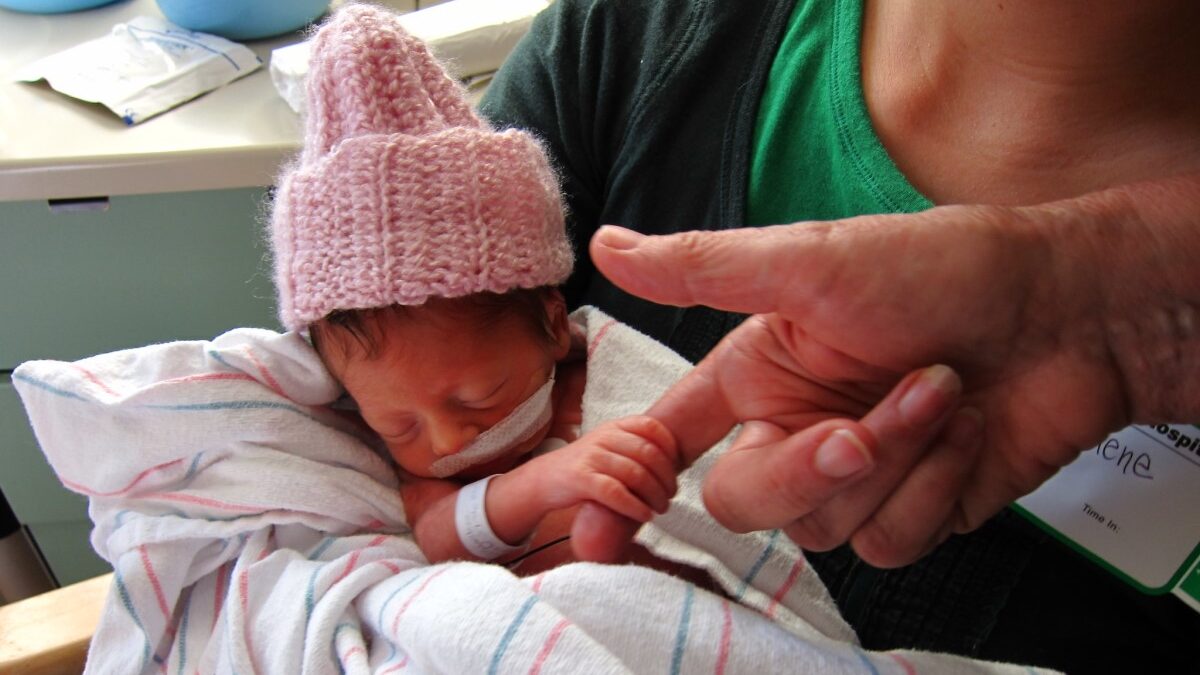As Virginia rounds the corner in its first session of 2022, legislation passed in the state’s pro-life House faces major challenges in the Senate. Although Virginia ushered in a pro-life governor this January, the Senate is still controlled by pro-abortion Democrats.
Last Tuesday’s “crossover” day marked a turning point in the 60-day session, as bills passed in the House and Senate moved down the hall for further votes. The Republican-controlled Virginia House passed HB 304, the Born Alive Infant Protection Act, sponsored by Del. Nick Freitas, R-Culpeper. The bill requires an abortionist to provide life-saving treatment for a child born alive after a failed abortion. It passed 52-48 along party lines.
Del. Dave LaRock, R-Loudoun, filed a mirror bill, HB 1349, and said he expects Senate Democrats to recognize the necessity of the basic human rights measure following public fallout from former Gov. Ralph Northam’s radical abortion interview in 2019. Northam spoke in favor of infant death without any attempt at medical intervention if an abortion failed.
“That comment by then-governor Northam shocked the world by revealing that Northam was among the most radically pro-abortion advocates who would allow a living, breathing baby to be denied proper care, treated as medical waste, and left to die,” LaRock said. “I am hopeful there will be enough Democrats who see infanticide as going too far. If that happens, the law will go to [Republican] Gov. [Glenn] Youngkin and I am confident that, given the opportunity, he will sign it.”
Currently, 35 states have passed similar legislation. It’s one of two main life issues before the Virginia legislature this session, along with the parameters for informed consent before women obtain an abortion.
“Once a baby is born alive…every possible medical care should be provided. Why isn’t that obvious to everyone?” said John Seeds, an OB-GYN and former department chair of obstetrics and gynecology at Virginia Commonwealth University. “At birth, they become a legal citizen and appropriate care should be required.”
The Republican-majority House also passed the Informed Consent/Women’s Right to Know bill Tuesday, introduced by Del. Karen Greenhalgh, R-Virginia Beach, to restore requirements removed by pro-abortion legislators in 2020. The bill would require abortion providers to present women with fully accurate, written information regarding the abortion procedure, available pregnancy support resources, and their rights prior to an abortion.
“Any woman contemplating abortion should be provided all information about the procedure including short- and long-term complications and the nature of the infant being aborted,” Seeds commented. “Otherwise, she is making a decision without all the needed information.”
The first pro-life bill to make it to the House docket in three years, HB 212 requires basic informed consent previously in place in Virginia.
“Helping mothers and fathers make informed decisions, which could include adoption for unwanted infants, will likely result in a win-win situation,” said LaRock, sponsor of several pro-life bills this session. “Mothers are going to avoid the guilt that may come with the irreversible decision to abort her baby. Babies find loving homes.”
Yet the Democrat-controlled Senate has proven a tough battleground for pro-lifers, with losses and wins in the session’s first 30 days. Sen. Amanda Chase, R-Chesterfield, described Senate Republicans and Democrats as sitting on either side of a “chasm” on major issues.
“You might get a couple of bills I call ‘do nothing’ bills that are going to pass, but significant legislation that’s going to have meaningful impact—it’s going to be hard to come by this session,” she said.
Chase introduced legislation to restrict abortions to 20 weeks of gestation in Virginia, based on medical evidence that an unborn child experiences immense pain by that point. The “pain capable” bill would allow for terminating a pregnancy if the mother’s life or health were at risk, with the intent of giving the unborn child the best chance to survive.
Sen. Siobahn Dunnavant, R-Henrico, a licensed OB-GYN in the state, provided strong testimony in favor of SB 710, which was also supported by Youngkin, Chase said. The bill was defeated in the Senate Education and Health Committee late last week.
“This bill was really a bill that showed compassion on the unborn,” Chase said. “It’s a humanity bill. It’s recognizing a baby can feel pain and that we as a society need to be humane to those babies…An unborn child has less legal protection from feeling pain than commercial livestock.”
Surrogacy law in the Commonwealth currently allows a couple contracting with a surrogate to require an abortion of a disabled unborn child or to abort multiples. Sen. Mark J. Peake, R-Lynchburg, sponsored SB 163 to prohibit the practice.
“This fixes a very bad problem in Virginia, to get [the state] out of the business of abortion under our surrogacy laws,” said Olivia Gans-Turner, president of the Virginia Society for Human Life. “The law is so old most legislators didn’t know it was there” until 2020, when a bill prohibiting it died in committee under a Democrat-majority House. The Senate voted unanimously in favor of the bill this session.
An assisted suicide legalization bill introduced by Democrats in the House and Senate failed to pass the Senate on a tie vote. Budgetary items, to include a Hyde Amendment bill limiting taxpayer funding of abortions in the state, will be considered later in the session.









